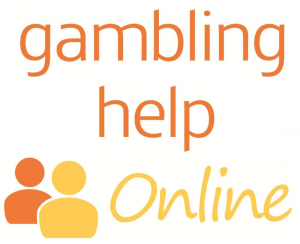Overview
If someone is experiencing difficulties with alcohol and other drugs or activities such as gambling, sex, internet use, eating, or social media, it can have a negative impact on their physical and mental health, their relationships, their work life and other areas of their life. Even when it may not appear ‘physically’ addictive, the influence over the person’s behaviour can appear very similar. Misuse and addiction can also cause psychological and physical withdrawal, higher-tolerance, and a loss of self-control.
The factors which might cause misuse and addiction are complicated and can relate to many different areas of life. These areas may be physical or mental health, social norms, biological or genetic factors, or stressors at work or home. The idea that misuse and addiction are ‘pleasure-seeking’ behaviours is more based in stigma than reality. Misuse and addiction can debilitate someone’s livelihood, completely against their own will. People experiencing difficulties with alcohol, other drugs, or activities have aspirations like anyone else, and deserve sustained abstinence and stable lives.
“Finding a new life on the other side of problematic substance use is a magical experience. I now have actually taken the time to stop, understand who I am and what I want in life, as well as let go of a whole lot of things that I had anchored in that no longer serve me and my purpose.” – Graig Worland
This information provides an overview of what misuse and addiction may look like, how they can affect someone’s life, how many people they affect, and where to get help.
Signs and Symptoms
Below are some of the signs and symptoms that may present in someone facing difficulties with alcohol and other drugs or other activities:
- Takes larger amounts of a substance or consume for much longer than originally intended
- Continues to use one or multiple substances after attempting to stop or control their intake
- Spends a long time acquiring, taking, and recovering from one or more substances
- Craves a substance or activity within an environment they associate with drug taking
- Neglects work, home or school responsibilities to seek and consume substances or activities
- Continues to consume, even if it causes interpersonal problems or relationship breakdown
- Continues to consume while knowing it causes physical or psychological harm
- Is unable to limit time or money spent on the activity (e.g., gambling or gaming)
- Sacrifices or reduces time for friends or family; spends on the activity instead
- Consumes the substance in dangerous situations
- Develops a tolerance, needing more to get the same sensation or ‘high’
- Retreats into isolation to consume the substance or practice the activity
- Hides supplies of a substance in unexpected places
- Experiences withdrawal, which occurs after taking one or more substances or doing the activity (such as gambling) over a long period of time. Withdrawal symptoms may include:
- Moodiness
- Irritability
- Sweats and tremors
- Poor focus
- Depression
- Anger and frustration
- Resentment
Research suggests that people experiencing these symptoms tend to respond well to treatments that help them address and manage their misuse or addition, improve their physical and mental health, and recover.
Causes of addiction disorders
The cause of someone’s addiction is often very complicated and personal. This section offers some insight into how someone may become addicted, but is not meant as a hard-and-fast guide that covers all bases.
There are many reasons someone may try an addictive substance (like stimulants) or an addictive behaviour (like gambling). Here are a few:
- They help people fit into social groups
- They provide relief from other stressful things in life, like work, family, school, or relationships
- Peer-pressure
- Self-medicating for other mental or physical health conditions
Taking drugs, or trying a form of gambling, does not necessarily mean that someone will become an ‘addict’. There are many factors that contribute to prolonged substance-use; they could be biological, neurological, psychological, or social. Some people may be more vulnerable than others to developing an addictive disorder. However, it is clear that people do not abuse drugs or other behaviours because they are ‘hedonistic’ or lazy. Addictive behaviours or substances can affect anyone, and are often influenced by circumstances that are impossible to control.
Neurological influences
After prolonged drug or alcohol-use, the brain may crave or ‘want’ a substance, regardless of someone’s intentions or goals. This process is called ‘neural sensitisation’, and is caused by the overstimulation of dopamine pathways in the brain. When these pathways change over time, certain environments or situations can trigger cravings in people experiencing substance-use disorder. Basically, the brain may associate drug taking with certain places, memories, or people, which can then stimulate the urge to use.
Psychological influences
In the short term, substances and addictive behaviours can provide relief from other life problems. These problems may relate to someone’s emotional state, their wellbeing, their sense of self, or their relationships with other people. However, the positive sensation associated with the drug or activity, and the negative experience of withdrawal, often reinforces a belief that they are necessary to function day-to-day. This process is known as the ‘operant learning approach’, where someone believes that they incapable of functioning without access to one or more substances or behaviour.
Social causes
Drug taking does not occur in a vacuum. Substance abuse is often encouraged by the context that surrounds the activity, like friends, lifestyle choices, or financial situation. In some cases, abstaining from drugs or addictive behaviours is only possible when someone gives up relationships with other people. Social circles where substance-use is acceptable can encourage someone’s dependence, especially if the social circle revolves around drug taking. Someone may have to cut certain people out of their life, move to a different place, or get a different job in order to stay sober.
How many people struggle with addictive disorders?
Alcohol and other drugs
According to the Australian Bureau of Statistics (2021), 3.3% of Australians have experienced difficulties with alcohol and other drugs in the last 12 months (650,800 people). Males were twice as likely to experience difficulties, compared to females (4.4% compared to 2.3%). Young people between the ages of 16 – 24 had the highest rates of difficulties in the last 12 months (9.1%). Those people without a stable home were more than twice as likely to experience difficulties with alcohol and other drugs in the last 12 months (8.2% compared to 2.9%).
In 2020, there were 1,832 drug-induced deaths, which is equivalent to 7.2 per 100,000 deaths. Opioids (heroin, codeine, oxycodone, fentanyl) were the most common drug type present in drug-induced deaths, accounting for about 4.2 deaths per 100,000. Benzodiazepines were the most common drug found in deaths caused only by one drug (3.2 per 100,000 deaths).
Between 2019-20, there were 62,757 hospitalisations relating to drug-use, which is about 0.6% of all hospitalisations.
Gambling-related difficulties
As of 2018, 7.2% of Australians were classified as ‘at-risk’ of gambling-related difficulties. Men are at greater risk (9.2%), compared to women (5.3%). About 1.1% of the Australian population were classified as ‘problem gamblers’, which is the most severe form of gambling addiction.
In Australia, statistics relating to other types of addictions are not available or are unclear.
How are addiction disorders treated?
There are various ways to treat addictive disorders. Depending on the severity and duration of the addiction, treatment may include 12-step programs, rehabilitation programs, psychosocial therapy, or medication. Everyone responds to treatment differently. For each individual, it can take time to figure out what works best, and what treatment is sustainable in the long run.
Psychological support
Psychological treatment can be very effective when treating addiction. Therapies like brief intervention, motivational interviewing, mindfulness-based relapse prevention, and cognitive behavioural therapy are demonstrated to reduce the risk of relapse and craving, while helping long-term outcomes post withdrawal. They also help someone identify patterns of drug abuse, avoid high-risk situations, and make healthy lifestyle changes. Psychological treatment works for substance-use disorders and for other behavioural addictions, like problem-gambling.
12-step programs
12-step programs are mutual-aid organisations set up to help people overcome their addiction. The most well-known 12-step programs are Alcoholics Anonymous (AA) and Narcotics Anonymous (NA). However, there are many other programs related to other types of addiction like gambling, sex, and eating.
12-step programs occur within a group (often sat in a circle), and are facilitated by people who have previously overcome addiction. Typically, 12-step programs hold weekly meetings where participants are encouraged to share their experiences and work together towards long-term sobriety.
The American Psychological Association has summarised the aims of 12-step programs:
- admitting that one cannot control one’s alcoholism, addiction, or compulsion
- coming to believe in a Higher Power that can give strength
- examining past errors with the help of a sponsor (experienced member)
- making amends for these errors
- learning to live a new life with a new code of behaviour
- helping others who suffer from the same alcoholism, addictions, or compulsions
Rehabilitation programs
Someone may access a rehabilitation program when they have experienced a long-term addiction and need more intensive treatment. Rehab programs can operate as inpatient residential programs, where someone lives at a facility over a period of days, weeks, or months. They can also function as a day clinic, where people can access treatment while still living at home. Typically, rehabilitation programs offer individual and group therapies, educational programs, and healthy lifestyle experiences relating to fitness and nutrition. Someone attending rehab will have access to doctors, nurses, addiction specialists, counsellors, and social workers. There are usually long waitlists for public rehabilitation clinics. Private clinics often have no waitlist; however, they vary considerably in cost, philosophy, procedures, and effectiveness.
Medications
Medication is often used with other treatment methods to manage withdrawal symptoms and support long-term abstinence. Depending on the addiction, various medications may help the process to recovery. Below lists a few medications often used to help people in withdrawal:
Benzodiazepines: used to treat acute alcohol withdrawal symptoms, cannabis withdrawal symptoms, occasionally used to treat stimulant withdrawal symptoms.
Dexamphetamines: Used to treat stimulant withdrawal by reducing cravings. Can present a risk of abuse, but are safe when taken under daily, supervised conditions.
Buprenorphine and Methadone: Used as a substitute to more harmful opioid substances like heroin, morphine, and oxycodone.
Naltrexone: Blocks receptors in the brain activated by opioid substances. Used for maintaining abstinence once long-term sobriety has been established.
Help & Support
Addiction is a serious mental health condition, not a character flaw. People often develop addictions due to life stressors, trauma, abuse, or other mental health problems. It is a condition that deserves treatment and support, and will often only improve within a nurturing environment, rather than stigma and/or punishment.
As will be obvious to many people who experience addiction, acquiring and concealing substances or behaviour (like gambling) can consume someone’s whole life. As a result, addictive disorders often create further mental or physical health problems, relationship breakdown, or financial hardship.
However, no matter how dire the situation, there is always help at hand. Around the country, there are services designed to assist people at any stage of addiction, no matter how severe. If reaching out to loved ones is frightening or difficult, these services can act as a support network that will listen to your experiences and guide you to the right treatment.
Next Steps
Call and talk to someone
- National Alcohol and Other Drug Hotline: 1800 250 015
- Gambling Helpline (24hrs): 1800 858 858
- Family Drug Support (for family, friends, and carers of drug users) (24hrs): 1300 368 186
- Stimulant Treatment Line (24hrs): 9362 8088 or 1800 101 188 (for outside Sydney)
- Opioid Treatment Line (Monday – Friday, 9:30 – 5:00pm): 1800 642 428
In person
Talking to a GP can also be a great place to start. They may suggest psychological treatment, and provide a referral to a psychologist or psychiatrist with experience in treating different addictions.
12-step programs such as AA and NA are open to anyone who wants to attend. To find a meeting, search your local area into one of the websites below.
Websites

Alcoholics Anonymous Meetings
There are AA meetings all over Australia, including online meetings. Use the lists to drill down by state, region, day, time and meeting type. Visit site(Opens in a new tab)
Narcotics Anonymous Australia
Find NA meetings all over Australia, including online. Use the lists to drill down by state, region, day, and meeting type. Visit site(Opens in a new tab)Alcohol and Drug Foundation
The Alcohol and Drug Foundation offer a useful resource to cut through the layers of information and services. The ‘Path2Health’ search engine helps someone quickly find information relating to their type of addiction and services in their local area. Visit site(Opens in a new tab)
Gambling Help Online
Gambling Help Online offers a wide range of information and support pathways for people across Australia. Visit site(Opens in a new tab)Counselling Online
Counselling Online is a free and confidential service that offers 24/7 counselling and support for alcohol and drug issues Visit site(Opens in a new tab)

